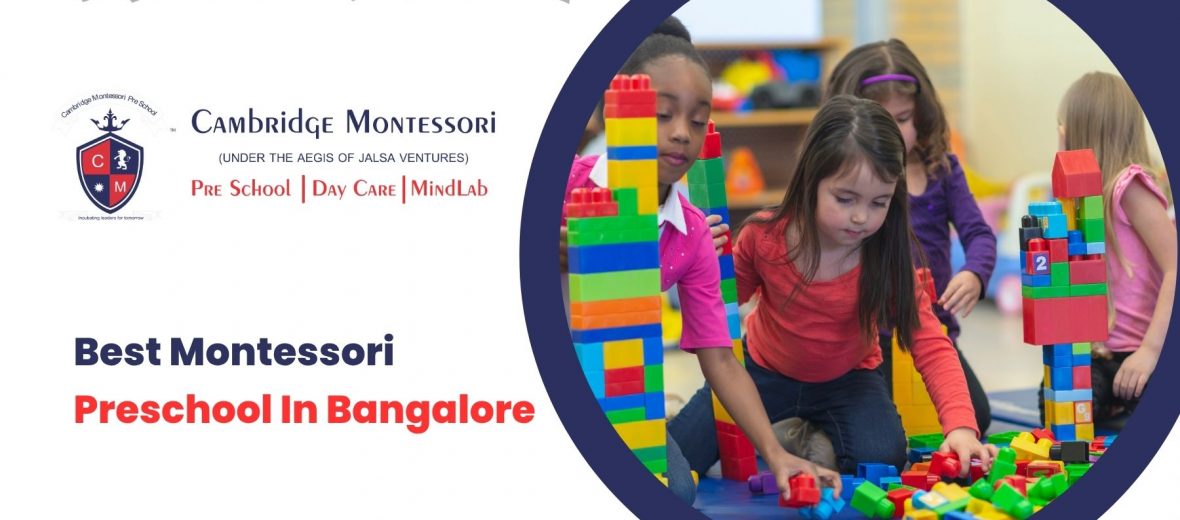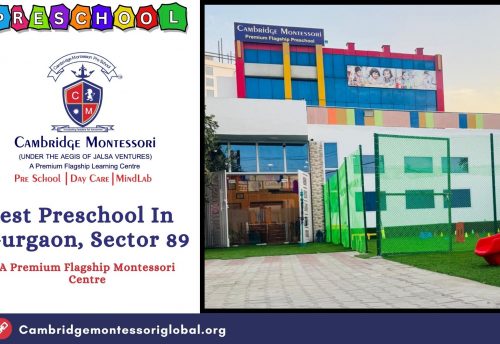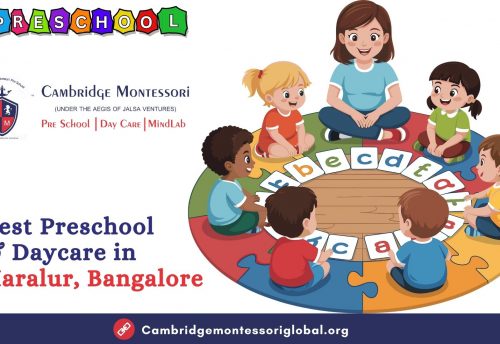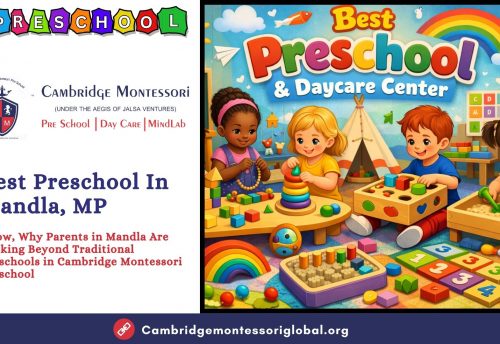
Best Montessori Preschool in Bangalore
The most important part of human development is early childhood. It is found that almost 85 percent of brain development in a child happens before the age of six years, and thus, the educational environment during these years is very important.
In Bangalore, there is an increasing trend among parents to educate their children using Montessori because it is a scientific, child-centered, and independence-oriented learning method. As demand for better educational options rises in regions such as Mathikere, Subramanyapura, Singasandra, Kalyan Nagar, and Kengeri, Montessori environments have become the necessary early learning option for urban families that require structured development without having to worry about academic achievements.
This blog unfolds what Montessori education can provide, why it can be of help to children of preschool age, and how, in Bangalore, parents can obtain the right to a quality Montessori educational environment.
The Montessori Education Compared to Traditional Education
The Montessori approach is premised on self-guided learning, practical experiences, and one-to-one teaching. Children learn through purposeful activities, specially designed learning materials, and real-world tasks, rather than only through lessons delivered by the teacher.
The basic elements of a Montessori classroom are:
- Prepared learning environment
- Self-learning materials
- Mixed-age classrooms
- Professional Montessori teachers
- Responsible freedom
- Focus on real-life and emotional development
This approach enables children to acquire decision-making, problem-solving, and social interaction skills—the main skills in lifelong learning.
Key Benefits of Montessori Education in Preschool Years
Develops Autonomy and Self-Reliance
Montessori encourages children to complete everyday tasks independently, such as pouring water, packing bags, tying their shoes, cleaning spills, and organizing learning materials. This enhances their self-discipline, responsibility, and confidence.
Enhances Mental and Physical Development
Activities include counting beads, sorting objects, recognizing patterns, and engaging in fine motor exercises.
- Early numeracy and literacy skills
- Hand-eye coordination
- Logical thinking
- Focus and concentration
Promotes Nature Study and Preliminary Education
Children develop at their own speed. They do not simply memorize but instead experiment with ideas and apply them practically, which creates an intrinsic motivation to learn.
Encourages Socio-emotional Development
Mixed-age classrooms allow young children to learn from older peers while older children develop leadership and cooperation skills. Team-based learning fosters understanding, tolerance, and communication.

Why Bangalore Parents Prefer Montessori Education
Bangalore’s rapidly developing academic and professional environment has motivated parents to value thinking skills over exam results. Montessori aligns with the needs of modern students.
Some reasons why parents in Bangalore prefer Montessori:
- Development of balanced academic and life skills
- Structured and serene learning conditions
- Development of discipline and concentration at an early age
- Instruction through professional observation
- Curriculum and learning tools that meet international standards
Parents in areas such as Kalyan Nagar, Mathikere, Singasandra, Subramanyapura, and Kengeri are increasingly favoring Montessori for its blend of international pedagogy and accessibility locally.
What a Montessori Learning Day Looks Like
A Montessori environment follows scientific learning rhythms and structured activity cycles. Children engage in:
| Learning Area | Sample Activities |
| Practical Life Skills | Pouring, buttoning, cleaning, and food cutting, tying laces |
| Sensory Learning | Shape sorting, sound cylinders, colour grading, tactile boards |
| Language Development | Sandpaper letters, phonics, object naming, storytelling |
| Mathematics | Bead chains, number rods, counting trays |
| Cultural Learning | Nature exploration, geography puzzles, basic science |
| Social Development | Group task, conflict resolution, and leadership roles. |
This structure ensures balanced development—academic, physical, emotional, and social.
Availability Across Bangalore.
Cambridge Montessori centers have become increasingly common in Bangalore, serving families in neighborhoods such as Brindavan Nagar, Mathikere, Subramanyapura, AECS Layout, Singasandra, HRBR Layout, Kalyan Nagar, and Kengeri.
- Brindavan Nagar, Mathikere
Address: 19/75-10, 5th Cross Rd, SBM Colony, Brindavan Nagar, Mathikere, Bengaluru, Karnataka 560054
- Subramanyapura
Address: near, 3, Jayanagar Housing Society, Gubbalala Main Rd, Gubbalala, Subramanyapura, opposite V6, Shopwell, Bengaluru, Karnataka 560061
Get Direction
- AECS Layout, Singasandra
Address: 24, 16th Cross Rd, opposite Prince Residency apartment, AECS Layout – A Block, Singasandra, Bengaluru, Karnataka 560068
Get Direction
- HRBR Layout, Kalyan Nagar
Address: Nbr – 721, 7th Main, 5th Cross Rd, 1st block, HRBR Layout, Kalyan Nagar, Bengaluru, Karnataka 560043
Get Direction
- Kengeri, Bengaluru
Address: 567, 1st Main Kengeri Satellite Town, Kengeri, Bengaluru, Karnataka 560060
These centers offer well-prepared learning facilities built to meet Montessori standards, helping children study safely and comfortably near home. Parents enjoy the predictability and ease of enrolling their child in a trusted early education center within their own neighborhood.
Choosing the Right Montessori Centre in Bangalore
The following are some of the factors that should be considered by parents before a center is chosen:
- Qualified Montessori teachers
- Learning materials that are scientifically designed
- Mixed age (2.5-6 years old)
- Hygienic and child-friendly facilities
- Structured activity cycles
- Observation-based teaching model
- Open communication with parents
A credible Montessori environment adheres to globally accepted guidelines while also adapting to Indian developmental needs and safety standards.
Conclusion
Montessori provides a solid, research-based foundation for lifelong learning. As the Montessori presence spreads throughout various major areas of Bangalore, families today have enhanced access to structured early-learning environments based on independence, discipline, and curiosity.
For parents seeking balanced development—including academic preparedness, personal discipline, social growth, and emotional stability—Montessori remains one of the best early childhood education options in Bangalore.
Frequently Asked Questions
Q1. What is the age of the children who can attend a Montessori preschool in Bangalore?
Ans. Montessori programs normally accept children aged between 2.5 and 6 years. This integrated age-group setting allows younger children to learn from their older peers, while older children gain leadership and interpersonal skills.
Q2. What makes Montessori any different from traditional preschool systems?
Ans. Montessori education emphasizes self-directed learning, independence, practical skills in the real world, and learning materials. Traditional preschools tend to adhere to teacher-directed lessons and worksheets. The ability to develop confidence, curiosity, and discipline is fostered by Montessori through structured freedom.
Q3. Do Montessori teachers receive special training?
Ans. Yes. Montessori teachers are professionally trained and certified in Montessori, classroom observation, child psychology, teaching strategies, and material use. Effective guidance in Montessori classrooms is provided only by trained facilitators.
Q4. Does Montessori equip children for regular school after preschool?
Ans. Absolutely. Montessori develops good academic preparedness, focus, problem-solving, language background, and self-reliance. Children transition smoothly into mainstream schools and are well equipped to manage themselves effectively.
Q5. What is the right way of selecting the Montessori center in Bangalore?
Ans. Look for centers with qualified Montessori teachers, learning materials that are scientifically designed, mixed-age classrooms, a child-safe environment, observation-based teaching, and transparent communication.
Before admission, parents should visit the school to observe classrooms and learn more about teaching methods.



